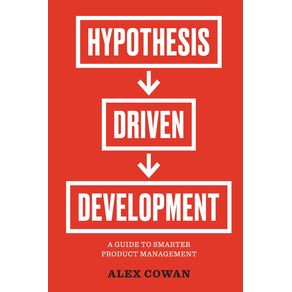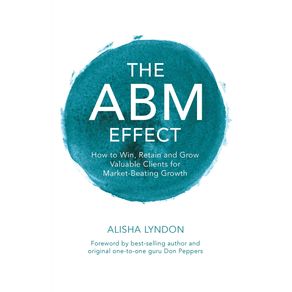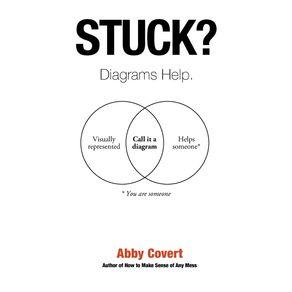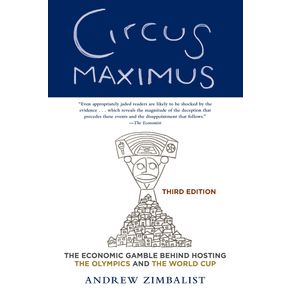| Selo | GRIN Verlag |
|---|---|
| Edição | 0 |
| Idioma | Inglês |
| Autores | Sumat Rajbhandari |
| Acabamento | Capa Comum |
| Quantidade de Páginas | 128 |
| Origem | Literatura Estrangeira |
 101 Perguntas sobre Bitcoin
101 Perguntas sobre Bitcoin
INTERMINDS EDITORA
R$ 64,00 à vista Smart Money Concept
Smart Money Concept
Marcus Blackwell
R$ 140,53 ou até 2x sem juros Hypothesis-Driven Development
Hypothesis-Driven Development
Cook & McDouglas
R$ 198,69 ou até 3x sem juros The 2-Hour Workshop Blueprint
The 2-Hour Workshop Blueprint
Big Charlie Press
R$ 138,78 ou até 2x sem juros Winning the Week
Winning the Week
Houndstooth Press
R$ 125,20 ou até 2x sem juros The ABM Effect
The ABM Effect
Momentum ITSMA
R$ 134,56 ou até 2x sem juros Confronting Mistakes
Confronting Mistakes
Springer Nature B.V.
R$ 345,54 ou até 3x sem juros Disrupt Disruption
Disrupt Disruption
New Degree Press
R$ 123,13 ou até 2x sem juros Quiet Voice Fearless Leader - 10 Principles For Introverts To Awaken The Leader Inside
Quiet Voice Fearless Leader - 10 Principles For Introverts To Awaken The Leader Inside
Frenchtown Publishing
R$ 126,99 ou até 2x sem juros Leading with Strategic Thinking
Leading with Strategic Thinking
John Wiley & Sons
R$ 167,41 ou até 3x sem juros Ichimoku Trading
Ichimoku Trading
Trade Stalker
R$ 100,69 ou até 2x sem juros A Espiritualidade na Angariação de Fundos
A Espiritualidade na Angariação de Fundos
GNP Global Nazarene Publications
R$ 70,35 à vista Meet Me On the Bridge
Meet Me On the Bridge
Manuscripts LLC
R$ 132,54 ou até 2x sem juros Stuck? Diagrams Help.
Stuck? Diagrams Help.
Lulu Press
R$ 275,64 ou até 3x sem juros The Work Before the Work
The Work Before the Work
Box of Tricks Publishing
R$ 155,18 ou até 3x sem juros Finanças para Compras: Domine técnicas e ferramentas para melhores resultados em Suprimentos
Finanças para Compras: Domine técnicas e ferramentas para melhores resultados em Suprimentos
Um Livro
R$ 62,90 à vista O milionário de amanhã começa hoje: Como fazer Fortuna com 300 reais
O milionário de amanhã começa hoje: Como fazer Fortuna com 300 reais
Ases da Literatura
R$ 54,90 à vista Dinheiro não é o problema, você é (Portuguese)
Dinheiro não é o problema, você é (Portuguese)
Access Consciousness Publishing Company
R$ 105,41 ou até 2x sem juros A vista do topo (2005)
A vista do topo (2005)
BUZZ EDITORA
R$ 49,90 à vista The 2-Hour Workshop Blueprint
The 2-Hour Workshop Blueprint
Big Charlie Press
R$ 138,78 ou até 2x sem juros Winning the Week
Winning the Week
Houndstooth Press
R$ 125,20 ou até 2x sem juros BlackRock de Larry Fink
BlackRock de Larry Fink
Draft2Digital
R$ 161,25 ou até 3x sem juros Disrupt Disruption
Disrupt Disruption
New Degree Press
R$ 123,13 ou até 2x sem juros The Highest and Best Use Playbook
The Highest and Best Use Playbook
Balmoral Press
R$ 134,07 ou até 2x sem juros Investment Strategies
Investment Strategies
Springer Nature B.V.
R$ 345,19 ou até 3x sem juros Leading with Strategic Thinking
Leading with Strategic Thinking
John Wiley & Sons
R$ 167,41 ou até 3x sem juros Organizar para a Complexidade. Como fazer o trabalho funcionar de novo, para criar organizações de alto desempenho
Organizar para a Complexidade. Como fazer o trabalho funcionar de novo, para criar organizações de alto desempenho
Follett Publishing
R$ 121,78 ou até 2x sem juros Value, Historicity, and Economic Epistemology
Value, Historicity, and Economic Epistemology
Springer Nature B.V.
R$ 346,52 ou até 3x sem juros Circus Maximus
Circus Maximus
Rowman & Littlefield Publishing Group Inc
R$ 236,18 ou até 3x sem juros Meet Me On the Bridge
Meet Me On the Bridge
Manuscripts LLC
R$ 132,54 ou até 2x sem juros Finanças para Compras: Domine técnicas e ferramentas para melhores resultados em Suprimentos
Finanças para Compras: Domine técnicas e ferramentas para melhores resultados em Suprimentos
Um Livro
R$ 62,90 à vista A vista do topo (2005)
A vista do topo (2005)
BUZZ EDITORA
R$ 49,90 à vista Como não ser uma vendida (Livro com brinde) (2005)
Como não ser uma vendida (Livro com brinde) (2005)
BUZZ EDITORA
R$ 59,90 à vista The 2-Hour Workshop Blueprint
The 2-Hour Workshop Blueprint
Big Charlie Press
R$ 138,78 ou até 2x sem juros The Almanack of Stanley Druckenmiller
The Almanack of Stanley Druckenmiller
Upgraded Publishing
R$ 154,95 ou até 3x sem juros BlackRock
BlackRock
Brief History
R$ 78,46 à vista Inteligência competitiva e estratégia empresarial
Inteligência competitiva e estratégia empresarial
KS OmniScriptum Publishing
R$ 390,72 ou até 3x sem juros Hidden Repression
Hidden Repression
Bitcoin Magazine Books
R$ 175,17 ou até 3x sem juros Stakeholder Engagement Essentials You Always Wanted To Know
Stakeholder Engagement Essentials You Always Wanted To Know
Vibrant Publishers
R$ 327,39 ou até 3x sem juros Value, Historicity, and Economic Epistemology
Value, Historicity, and Economic Epistemology
Springer Nature B.V.
R$ 346,52 ou até 3x sem juros Project Management in the Hybrid Workplace
Project Management in the Hybrid Workplace
Racket Publishing
R$ 141,51 ou até 2x sem juros The 2-Day-CEO
The 2-Day-CEO
Rise Up Kings Inc
R$ 140,87 ou até 2x sem juros The Future of Purpose-Driven Branding
The Future of Purpose-Driven Branding
Morgan James LLC (IPS)
R$ 126,58 ou até 2x sem juros Meet Me On the Bridge
Meet Me On the Bridge
Manuscripts LLC
R$ 132,54 ou até 2x sem juros The Work Before the Work
The Work Before the Work
Box of Tricks Publishing
R$ 155,18 ou até 3x sem juros